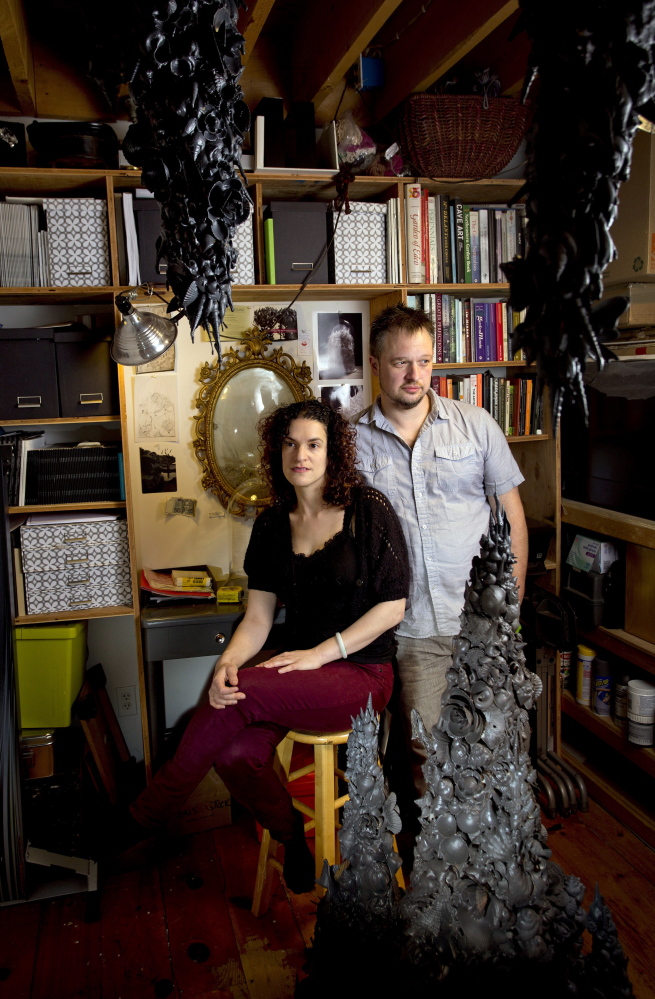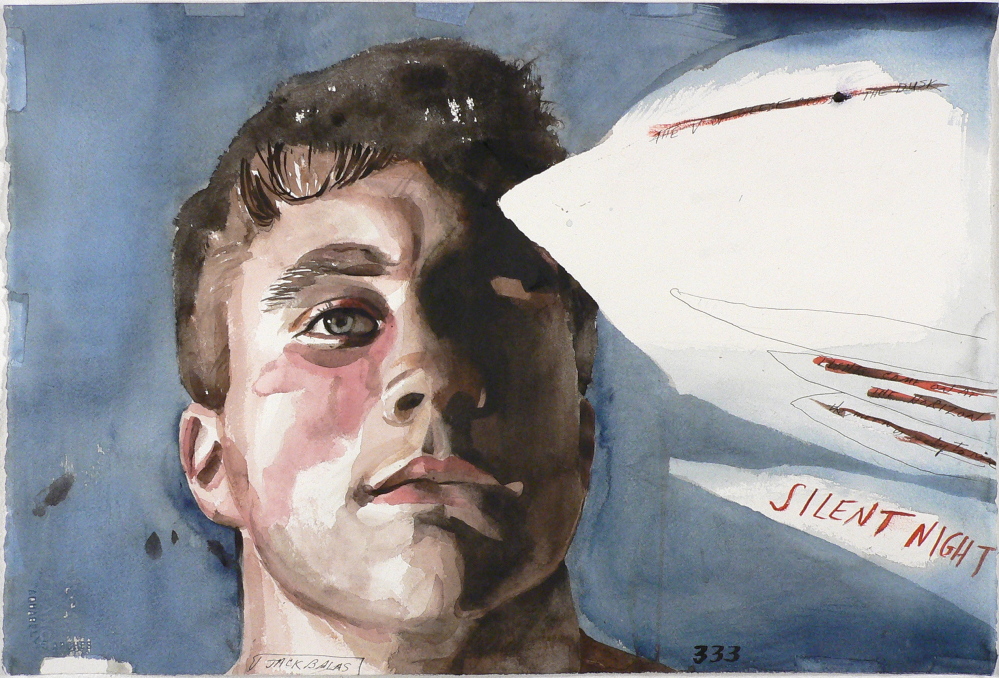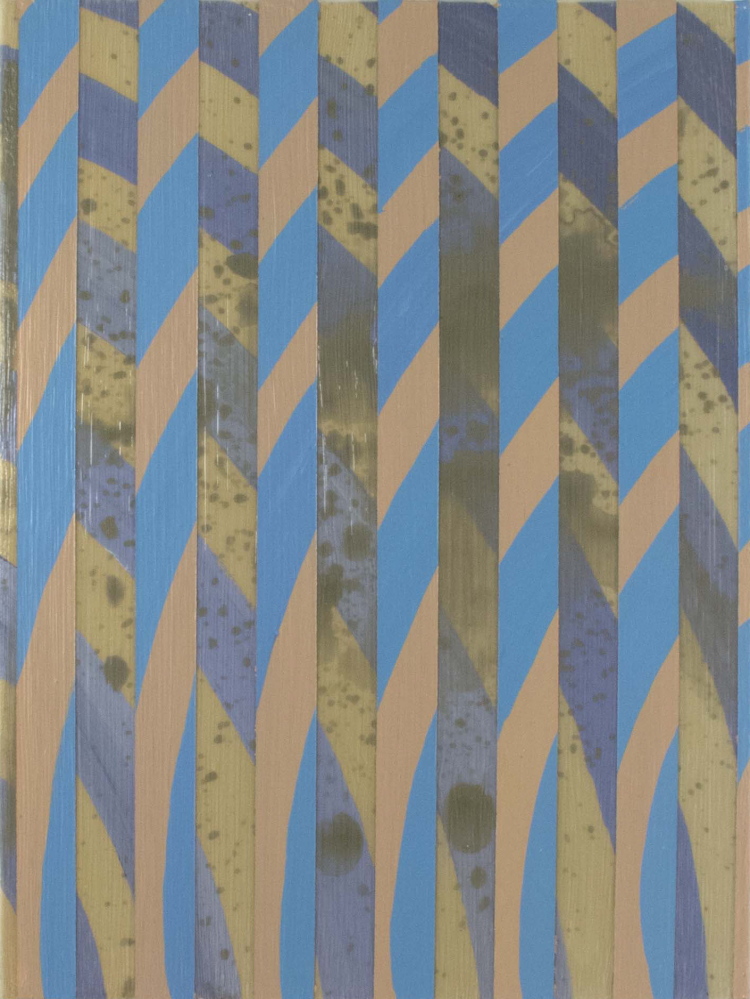For Lauren Fensterstock, Miami Beach means mission accomplished.
The 39-year-old Portland artist was among the masses who traveled to Art Basel Miami Beach earlier this month. She went to the trendy art gathering to introduce a new series of sculptures, to see what her colleagues were up to and to hobnob with art-world trendsetters.
Fensterstock made one “significant” sale and contacts with curators and gallery directors that might lead to more exhibition opportunities. Artsy, an online journal that covers contemporary art, named her one of the top artists in the country younger than 40, based on her showing in Miami.
Fensterstock’s success demonstrates how the work of contemporary artists in Maine fits seamlessly into the broader art-world conversation. That conversation, and the ways in which it was carried out in Miami, could begin to have a stronger influence here in Maine in the months to come. Two dozen Maine artists exhibited at Art Basel, and nearly every museum director in the state attended.
What they learned there likely will influence the work that artists make and the exhibitions that Maine museums host. Fensterstock saw thousands of pieces of art as part of her research for future work, and museum directors got ideas about what’s coming next. Some bought art at Miami to hang in their museums, while others laid the groundwork for future purchases.
Art Basel has become the go-to art fair in the United States. It has spawned a dozen related art fairs in and around Miami at the same time, giving artists like Fensterstock and her partner and fellow artist, Aaron T Stephan, the chance to see a lot of work, think about their art in a global context and connect with curators.
It’s also spawned a growing legion of critics. The journal ArtNet, which reports about the art market, called it a “gilded affair” that inflates prices for unworthy art, where more attention is paid to parties and the social scene than art itself.
Six-figure sales were reported throughout the fair, said ArtFix Daily, which reports on the art world. Among the sales with Maine ties were a John Marin oil, sold to a private collector, and what ArtFix Daily called “a stunning Jamie Wyeth” from the early 1990s.
Blinding prices didn’t stop a parade of art-world players from making the trip from Maine to Miami. For curators and directors, the Miami art fairs provide the best opportunity to gauge art trends, network with colleagues and meet artists. Some came home with new work for their museum collections.
“For me, it’s like taking 20 trips to New York,” said Suzette McAvoy, director of the Center for Maine Contemporary Art in Rockport. “You can see so much art in such a concentrated period of time. It gives you an overview of what’s out there, what the trends are and how Maine artists fit within that whole scope of work.”
McAvoy has attended for four years. She first went at the invitation of a CMCA trustee, who has a home in Coral Gables, Florida. This year, McAvoy was among a group of about a dozen CMCA trustees and donors who made the trip. The experience is an invaluable educational tool, McAvoy said.
“There is so much down there of all stripes,” she said. “It’s not just the controversial or the million-dollar-plus pieces. It’s work by emerging artists and all different levels and tastes.”
This year’s fair was especially important for McAvoy and her team. She visited nine museums and art centers collecting ideas for the new CMCA building, under construction in Rockland and set to open in 2016. She observed how they display work, what their gift shops look like and how the buildings function for first-time visitors.
For Mark Bessire, director of the Portland Museum of Art, a trip to Miami is the best way to keep tabs on emerging artists.
“It’s an opportunity to see what other parts of the world are presenting as their strongest work,” he said. “I can’t afford to fly to those other places. But I can go to Miami.”
Like McAvoy, Bessire and chief curator Jessica May brought a group of museum patrons. The trip is a perk for patrons and a way to further their art education, especially with an eye toward new acquisitions. If the patrons see something they like, they might consider buying it for the museum.
“It’s a chance for them to get a first look at some of this work and the opportunity to walk through the work with a curator, who can help them understand it better,” he said.
Bessire’s take-away: “Overall, the fairs seemed to have art that was less political and little bit less directly relating to social issues, and a little less conceptual. I found the overall fairs had some beautiful, beautiful work, but in some ways it was not the most challenging.”
May and Bessire are trading ideas about possible purchases and will present those ideas to the museum committee that approves acquisitions.
May said she appreciated seeing the work of three artists in Miami who were part of the most recent PMA Biennial, which she curated: Caleb Charland, Brian Graf and Fensterstock.
Fensterstock exhibited three pieces, including one from a new series of dark-colored stalagmites that she constructs with sea shells and coats in rubber. On a good day in a gallery, 20 people might see her work, she said. At the fair, thousands of people saw them over four days.
“It’s just very exciting to be able to place your work in a national or international context,” she said.
George Kinghorn, director of the University of Maine Museum of Art in Bangor, came home with two paintings, purchased with money from the museum’s acquisition fund. One is a small piece by Bruce Price, who earned his master’s in fine art from Maine College of Art in 2006. The other is a Jack Balas watercolor, “Silent Night.” Kinghorn will hang the newly acquired work in the Bangor museum in the spring.
Kinghorn, who came to Maine from the Museum of Contemporary Art in Jacksonville, Florida, has attended the Miami art fairs more than a dozen times. He knows the scene well and enjoys navigating through the hype to find the substance. He uses the gathering to scout artists to show in Maine. A UMaine exhibition earlier this year of paintings by Boston artist Maya Brodsky stemmed from Kinghorn’s attendance at Miami previously.
For him, the art fair also affirmed prior buying decisions. A few years ago, he bought a painting by Cayce Zavaglia; he hung it this year.
At Miami, Zavalgia’s work was selling for almost four times what Kinghorn paid for it.
“It’s nice validation,” he said. “As a curator it is very rewarding to identify artists whose careers are on the rise. Locating these artists amidst the huge quantity of works on the display at the fairs is a challenging yet exciting endeavor.”
Dan Mills, director of the Bates College Museum of Art, did not go to Miami, but his work did. In addition to directing the museum at Bates, Mills is a practicing artist. His Chicago gallery, Zolla/Liberman Gallery, had a booth at one of the fairs, and displayed one of Mills’ cartographic works on paper.
He has mixed feelings about art fairs. They’re big trade shows, with a focus on sales and spectacle.
“It can be an odd and traumatic experience for an artist,” he said. “I know some artists who have a ball and some for whom it’s something they can’t take. It’s certainly a different world than the revered response that one might have when walking into a museum.”
Still, he’s glad to have his work out there for all to see.
“It’s always good to have your work talked about, isn’t it?”
Bob Keyes can be contacted at 791-6457 or:
Twitter: pphbkeyes
Send questions/comments to the editors.






Success. Please wait for the page to reload. If the page does not reload within 5 seconds, please refresh the page.
Enter your email and password to access comments.
Hi, to comment on stories you must . This profile is in addition to your subscription and website login.
Already have a commenting profile? .
Invalid username/password.
Please check your email to confirm and complete your registration.
Only subscribers are eligible to post comments. Please subscribe or login first for digital access. Here’s why.
Use the form below to reset your password. When you've submitted your account email, we will send an email with a reset code.